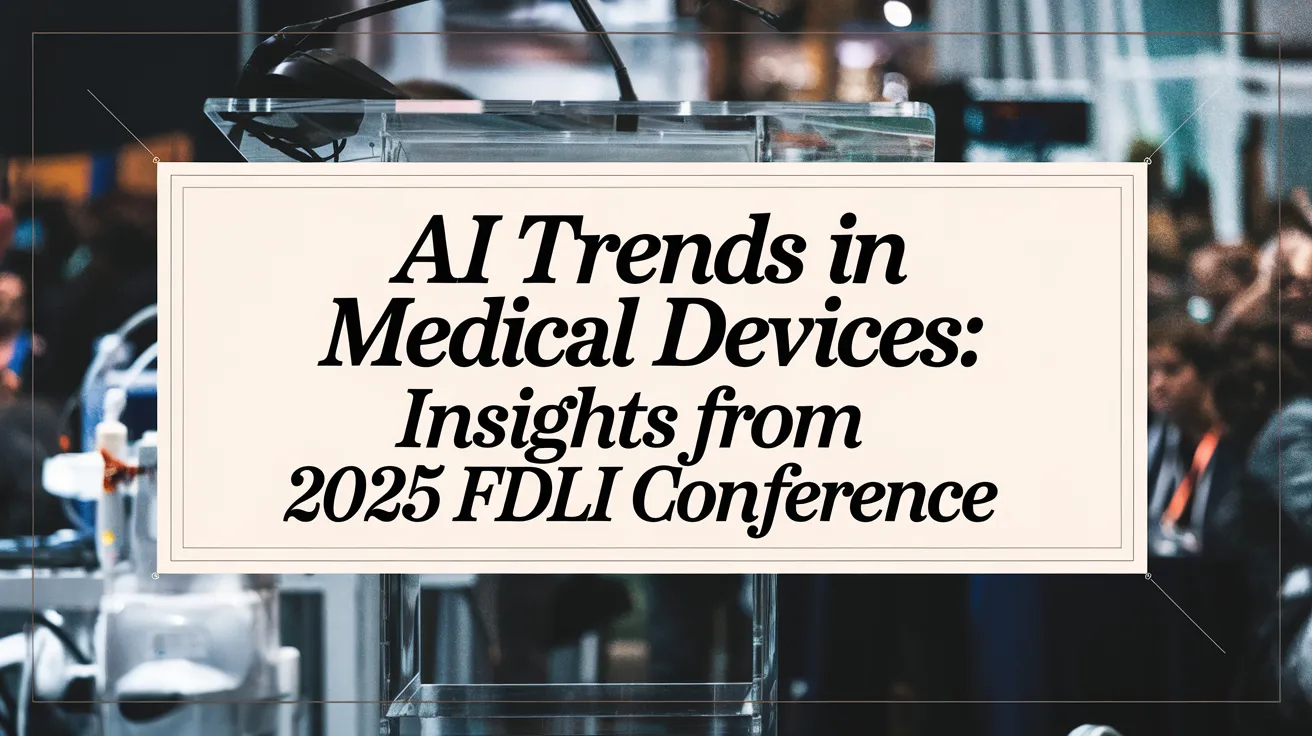AI Trends in Medical Devices: Insights from 2025 FDLI Conference

At the 2025 Food and Drug Law Institute (FDLI) Annual Conference, Ariel Seeley participated in a panel titled “AI Trends in Medical Devices: Global Developments, FDA Policies, and Software as a Medical Device.” The discussion provided valuable insights into the FDA’s approach to predetermined change control plans (PCCPs) and outline current trends in artificial intelligence (AI) integration within medical devices.
Overview of FDA Guidance on AI
The FDA’s guidance concerning the use of PCCPs outlines recommendations for establishing and modifying these plans. This includes detailed information on data management, retraining practices, and performance evaluation protocols. Notably, the FDA has indicated a willingness to consider modifications based on generative AI through a PCCP framework. Furthermore, the draft guidance related to lifecycle management emphasizes the importance of device transparency, suggesting the incorporation of a Model Card to aid manufacturers in presenting information on their AI-enabled devices.
Current Trends in AI-Enabled Devices
The excitement surrounding AI’s potential to transform healthcare is palpable. Over the past five years, the FDA has authorized over 1,000 AI and machine-learning-enabled devices, primarily within areas such as radiology, cardiology, neurology, and anesthesiology. However, most of these devices employ locked algorithms, indicating that they do not generate new content after reaching the market. As experience grows, having a thoughtful approach to pre-market interactions becomes crucial.
Engaging with the FDA
Early engagement with the FDA offers significant advantages, particularly for novel technologies and complex PCCPs. These plans, while efficient, often necessitate more upfront work compared to traditional submissions. Clear communication regarding device indications, associated risks, and benefits is essential for fruitful feedback. Engaging experienced professionals can facilitate better articulation of device details and proactive risk mitigation strategies during FDA interactions.
The Future of AI in Medical Devices
The landscape of AI-enabled medical devices is rapidly evolving. With future user fee negotiations underway, we can anticipate new policy initiatives and legislative proposals emerging from discussions between the FDA and industry stakeholders. Monitoring these developments will be vital, as they hold significant implications for the integration of AI in medical technologies.
Stay updated on the latest programming, guidance, and legal developments affecting the life sciences industry by subscribing to our mailing list.